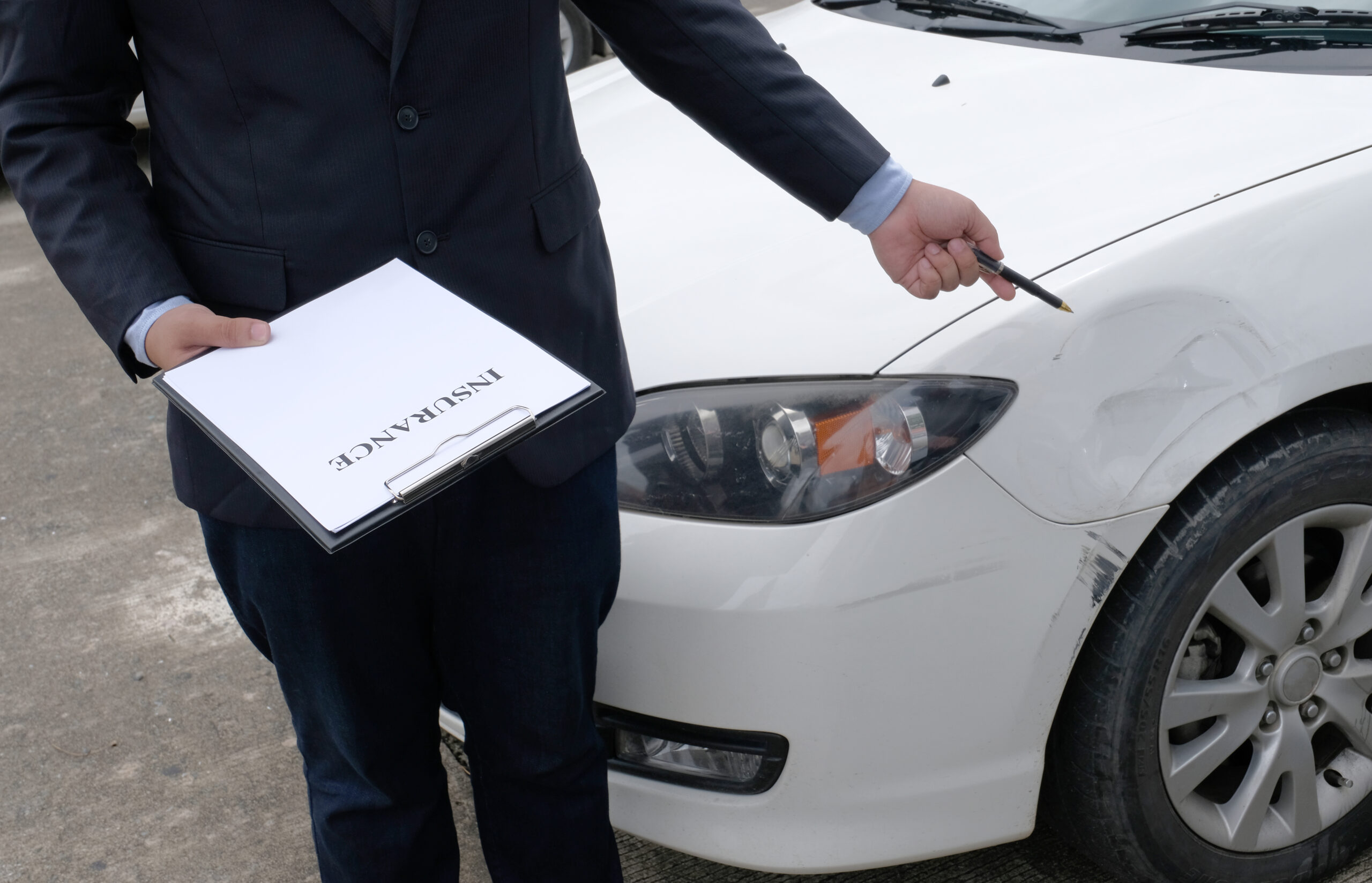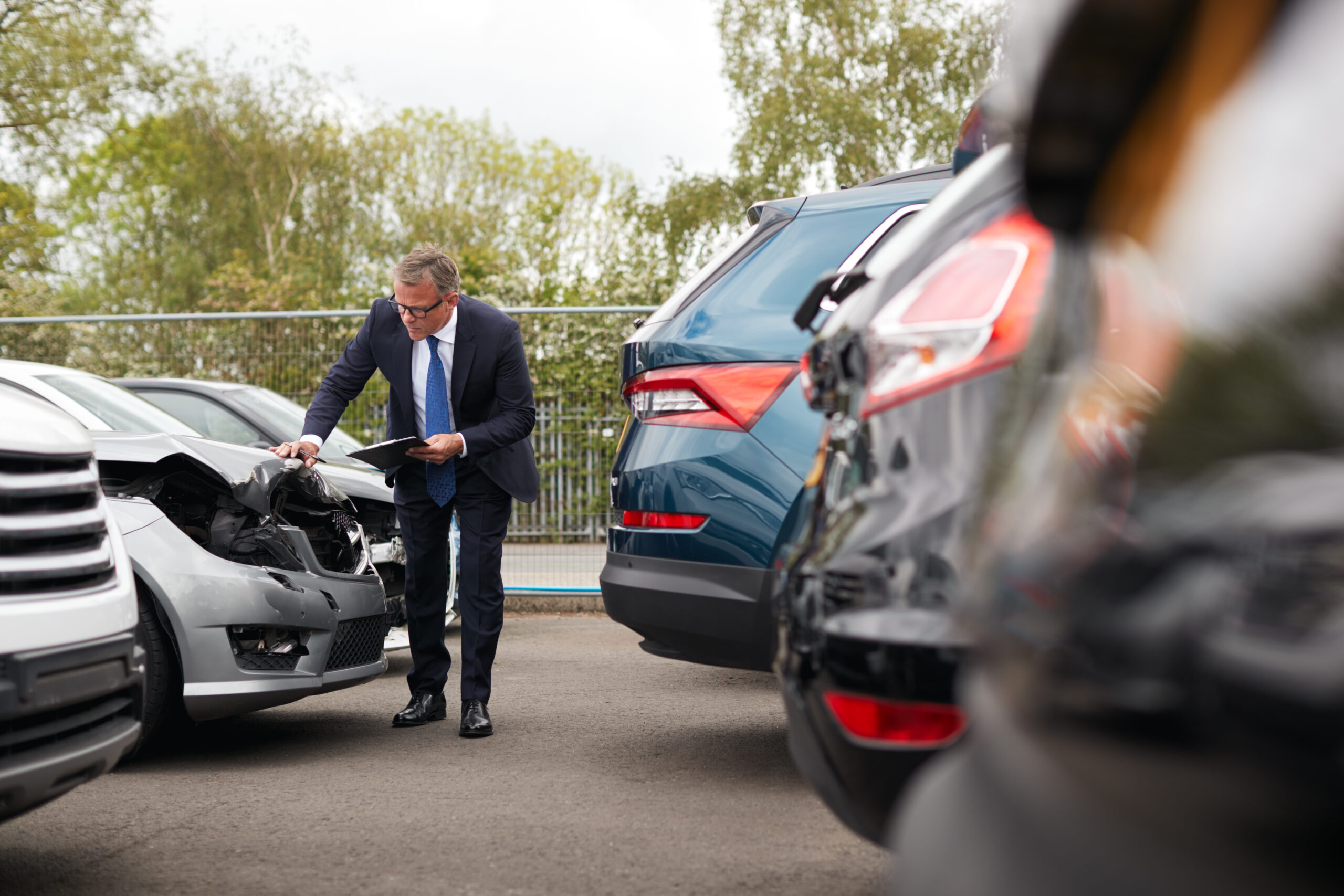A rental car accident can create more than just stress; it can trigger complicated legal and financial questions. Unlike a typical car accident, rental car collisions often involve additional contracts, insurance providers, and liability rules. Understanding rental car accident liability is essential to protect yourself from unexpected costs and disputes.
At The Roth Firm, we assist clients in Georgia and Tennessee in navigating the unique legal issues that arise when a rental vehicle is involved. This guide covers who may be responsible for damages, common insurance challenges, and the steps you should take immediately after an accident.
Who Pays Damages in a Rental Car Accident
Determining who pays for damages after a rental car accident depends on several key factors, including fault, the rental contract, and the applicable insurance coverage.
In most cases, the at-fault driver is financially responsible for the damages. If you have personal auto insurance, it may cover rental cars, although this depends on the terms of your policy and whether you are using the rental car for personal or business purposes. If another driver caused the accident, their insurance should be liable for your losses. Additionally, if you purchased coverage from the rental company, that policy may help cover certain expenses.
It’s common for multiple sources of coverage to apply at once, which can complicate the process. Insurers may dispute who is primarily responsible, leading to delays in payment. Without experienced legal guidance, you may find yourself caught between companies pointing fingers at each other instead of resolving your claim.

Legal Issues and Rights in Rental Car Accident Liability Cases
Key Takeaways
- Rental car accident liability often involves multiple insurance policies, making the process more complex than standard accident claims.
- Review your personal auto insurance before renting to understand your coverage.
- Liability waivers can reduce your responsibility for damages, but only if you meet all the contract requirements.
- Rental companies have legal duties to maintain safe vehicles and disclose important information.
- Prompt action, thorough documentation, and legal support can significantly impact your claim outcome.
Insurance Challenges
One of the most complicated aspects of a rental car accident is untangling the insurance coverage. Because multiple policies may apply, your own auto insurance, the other driver’s policy, the rental company’s insurance, and possibly credit card benefits, determining which one pays first can be a challenge.
Coverage gaps are a common issue. Many people assume that their personal auto insurance automatically covers rental cars, but some policies exclude rentals, especially those used for business purposes. Even when coverage applies, policy limits or exclusions may still leave you responsible for certain expenses.
High deductibles can also create unexpected financial strain. You may purchase coverage from the rental company, but you still owe a significant deductible before benefits take effect. Credit card rental insurance may help, but it usually acts as secondary coverage, only stepping in after primary coverage has been exhausted.
These overlapping and conflicting policies often lead to disputes between insurers, resulting in delayed payments. Without legal representation, you may be left covering costs upfront while waiting for reimbursement.
Liability Waivers
When renting a car, you may be offered a Collision Damage Waiver (CDW) or Loss Damage Waiver (LDW). These are not technically insurance but contractual agreements in which the rental company waives its right to hold you financially responsible for vehicle damage, as long as you follow the rental terms.
A waiver can offer valuable protection by shielding you from repair costs or loss-of-use fees. However, these agreements come with strict conditions. Violating the rental contract, such as driving recklessly, allowing an unauthorized driver to operate the vehicle, or using the car for prohibited purposes, can void the waiver entirely.
Understanding exactly what a waiver covers and what actions can nullify it, is essential before relying on it for protection.
Rental Company Responsibilities
Rental car companies are legally obligated to ensure the safety and roadworthiness of their vehicles. They must perform regular maintenance, address safety recalls, and comply with all state and federal regulations for vehicle rentals. They are also responsible for clearly explaining rental terms, available coverages, and any limitations before you sign the contract.
If a rental company fails to meet these obligations, such as renting out a defective vehicle, and that negligence contributes to an accident, they can be held liable for damages.
Steps to Take After a Rental Car Accident
If you are involved in a rental car accident, the steps you take immediately afterward can have a lasting impact on your claim. First, ensure everyone’s safety and call emergency services if necessary. Move to a secure location and contact the police to file an official report.
Document the accident scene thoroughly with photographs, videos, and witness contact information. Notify the rental company immediately and follow their accident reporting procedure. Contact your insurance provider promptly and supply all relevant documentation. Before making any recorded statements to insurers, consult an attorney to protect your rights and avoid missteps that could jeopardize your claim.
FAQs
- Does my personal auto insurance cover rental cars?
It depends on your policy. Some provide coverage for rental cars, while others exclude them, especially for business use. - If I’m not at fault, do I still have to pay for damages?
You may have to pay initially and seek reimbursement later, depending on your coverage and the rental agreement. - Will a liability waiver protect me from all costs?
No. Waivers have exclusions and can be voided if you violate the rental terms. - Can the rental company be held responsible for an accident?
Yes, if their negligence, such as renting out an unsafe vehicle, contributed to the accident. - What if the other driver is uninsured?
Your insurance or the rental company’s policy may offer uninsured motorist coverage, depending on the terms. - How does credit card rental insurance work?
It typically serves as secondary coverage, paying only after your primary policy has been applied. - How soon should I report the accident to the rental company?
Immediately. Delays can violate the rental contract and jeopardize coverage. - Why should I hire an attorney for a rental car accident?
An attorney can manage disputes between insurers, ensure you meet all requirements, and protect you from paying costs you don’t owe.
The Roth Firm, LLC has been helping accident victims since 2006. We understand the legal complexities of rental car accident claims and have the experience to hold all responsible parties accountable.
Contact us today for a free consultation and let us fight for your rights.

